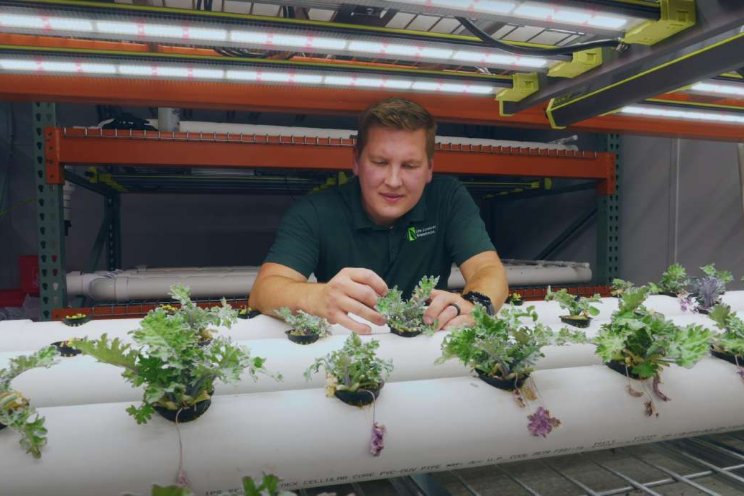INTERVIEW | PU Divisional Engineer, Horticulture
Added on 20 January 2020

Being the divisional engineer horticulture what projects have you initiated in the field?
What can be done is being done with all the resources I have got. We have developed eight parks in the last ten years, the main ones being the Rose garden (the best garden in the Tricity) and the palm garden.
Every year two festivals are celebrated, Rose festival in February and Chrysanthemums (Guldodi) in December. For the education of children, we have developed a herbal garden near the office of dean where different herbs have been planted. Often, pharmacy students visit the garden for research. Whatever sources we have got in Panjab University, we use them sustainably. Flowers near the office of the Vice Chancellor bloom so well that many would find it hard to believe that the garden was a waste land before. We keep adding new features to it timely.
Waste segregation emerges as an important practice for reducing pollution. What is waste segregation and why is it needed?
Segregation is the process of dividing the waste and putting them into bins according to their nature. Wet bins are used for the vegetable or fruits, peels, leftover food, etc. Dry waste consists cans, plastic, glass, metal and so on. Once both are separated, the wet waste goes for decomposition and dry waste is sent for recycling.
Polythene is the main reason for waste segregation and pollution. Once polythene is banned completely, there will be no need of waste segregation. Government is spending billions on waste segregation but not enough money to put an end to polythene usage. They banned the use of polythene bags but will never be able to stop usage of polythene wrappers over junk food. Will they? Till the government does not take strict actions, it is difficult to reduce pollution. Public awareness and public contribution is also a must.
What can be the alternative to manual segregation of waste?
Look at the Dadu Majra heap of waste and the entrance of Delhi. It is full of filth, smell and disease. Diseases including bacterial infections, lung infections, skin infections, meningitis have become a part of our routine. The expected life span is getting lower, even teens are diabetic today.
I had studied a machine in Palampur district in Himachal that doesn't need segregation, but separates the waste without manpower, preventing workers from catching diseases. The machine chopped the polythene and formed bricks, pots, and flower vase out of it.
Decomposing organic waste has always proved to be an eco-friendly method. Do you agree with its importance for the environment?
Composting practices should become mandatory the same way that solar panels are mandatory for multi-storied buildings. The method is painless, just that the government needs to renew primitive methods which, according to me, are off target. They prefer anaerobic conditions for the decomposition by putting the waste in air-tight pits to fragment while aerobic can decompose better. The waste needs to be put in a pit with cow droppings and be allowed to deteriorate with the availability of air.
There are different machines available which can help in maintaining the quality of air like that of agro-machines for stubble burning. Why aren't these machines being used?
No one wants their income to go down and the same goes for farmers. The machine itself is unaffordable for majority of the farmers and then they also have to pay for extra charges like transportation. Until the farmers get benefit by machines, they will not stop the practice of stubble burning. It should be ensured that machine sare available at the Panchayat level or community level and farmers should be able to rent them. I saw that in places like Moga and Ferozpur, where machines have been provided, they had gathered the stubble at one place as a piece of evidence to show the Supreme Court and later the pile got scattered or burnt.
Besides those machines are fitted with a kind of plough that takes the stubble out along with the soil. The soil helps in quick decomposition of the stubble and can be used as fertilizer.
Nowadays we all hear that the food we consume from plants is not pure. Is the use of pesticides responsible?
Pesticides and insecticides are used for an immediate effect on plants, so as to acquire the production swiftly. These pesticides or chemicals pay-off but turn out to be unhealthy for the consumers. The contrary option to this is the organic farming which is done by using Alum for the infected plants or turmeric for wounded plants, etc.
According to you, how are plants, crops, and plant produce fruits or vegetables affected by the constant escalation in pollution?
The effect of pollution is not immediate; it gradually shows impact as the genes of the seeds or plants get affected. It is similar to how pollution has affected the environment. After years of polluting, its results on environment are visible only now, like the fire in Australia which has killed millions of animals.
We have seen drop in the Swacch ranking from the third position to the 20th in 2019. What may be the reasons for that?
People are not taking responsibilities at individual levels. They expect things, but don't contribute for the betterment. People don't segregate waste, they don't properly use bins, polythene has become must, litter from households is thrown away just anywhere, and things are not being taken seriously. Other cities like Indore, which are cleaner than Chandigarh, must have developed better techniques than Chandigarh; they must have been using advanced methods which Chandigarh does not.
What policies can be initiated to control environmental degradation?
Like traffic rules, environmental rules should be adhered to. Special fines should be implemented for every action that harms the environment. People should acknowledge their responsibility and anyone throwing trash in public should be questioned. Many don't pay for the trash coming out of their homes, they should be held accountable. Strict rules should be applied for the practice of segregation and the government should provide dustbins to each household.
Source and photo courtesy of Indian Express
Source: Indian Express
More news















